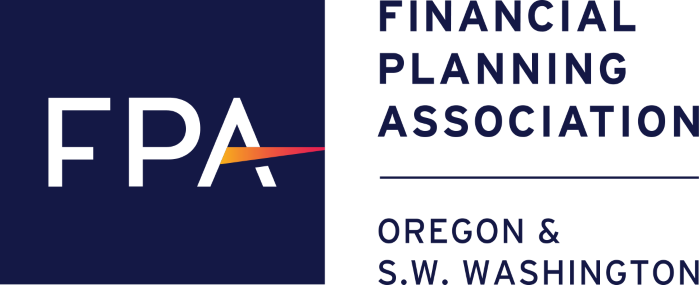Find a Financial Planner
Search our Financial Planner Database

Benefits of Using a Planner
A financial planner helps you:
- Set realistic financial and personal goals.
- Assess your current financial health by examining your assets, liabilities, income, insurance, taxes, investments and estate plan.
- Develop a realistic, comprehensive plan to meet your financial goals by addressing financial weaknesses and building on financial strengths.
- Put your plan into action and monitor its progress.
- Stay on track to meet changing goals, personal circumstances, stages of your life, products, markets and tax laws.
Choosing a Planner
You want to choose a financial planner who puts your needs and interests first. In addition to competency, a financial planner should have integrity, trust and a commitment to ethical behavior and high professional standards. In order to choose the right planner for you, it is important to determine your needs. Many planners specialize in working with certain types of clients, such as small-business owners, executives or retirees. Many have minimum income and asset requirements. Some specialize in certain areas of planning such as retirement, divorce or asset management. This is why we recommend that you interview at least three planners in person to find the right one to serve your needs.
How Do Planners Charge?
Financial planners can be paid in a variety of ways, and each has its merits. Choosing the appropriate method depends on your individual situation. Before entering into a relationship with a planner, you should have a clear understanding of how he or she will be compensated.
- Fee-only: All of the financial planner’s compensation from his or her client work comes exclusively from the clients in the form of fixed, flat, hourly, percentage or performance-based fees.
- Commission-only: There is no charge for the planner’s advice or preparation of a financial plan. Compensation is received solely from the sale of financial products you agree to purchase in order to implement financial planning recommendations.
- Combination Fee/Commission: A fee is charged for consultation, advice and financial plan preparation on an hourly, project or percentage basis. In addition, the planner may receive commissions from the sale of recommended products used to implement your plan.
- Salary: Some planners work on a salary and bonus basis for financial services firms.
Please Note: In all of the above categories of compensation, you should request information on any real or potential conflicts of interest. In addition to commissions received from any financial product sales, you should ask whether there are outside incentives or bonuses to be gained by the planner for certain recommendations.
What Should I Bring To My Meeting?
There are a number of documents you’ll need when working with your financial planner, and he or she may provide you with a customized list for your specific needs. Your list may include:
- Bank Statements
- Pay Stubs
- Check Registers
- Credit Card Balances
- Mortgage or Loan Payment Books
- List of Assets
- List of Liabilities
- Completed Expense Worksheet
- Wills, Trusts, Healthcare Powers of Attorney, Health Care Proxy or Other Powers of Attorney
- Business Agreements
- Titles for Homes, Cars, Real Estate, etc.
- Retirement Account Statements
- Social Security Statements
- Pension Benefit Statement and Booklet
- Investment Statements
- Listing of Available Investment Options in Investment and Retirement Accounts
- Stock Options
- Homeowner and Automobile Declaration Pages
- Life, Disability or Long-term Care Insurance Polices
- Business Liability, Director and Officer Insurance Policies
- Tax Return
- Tax Estimate for Next Return (e.g., Deductions, Credits, etc.)
- List of Employee Benefits
|

